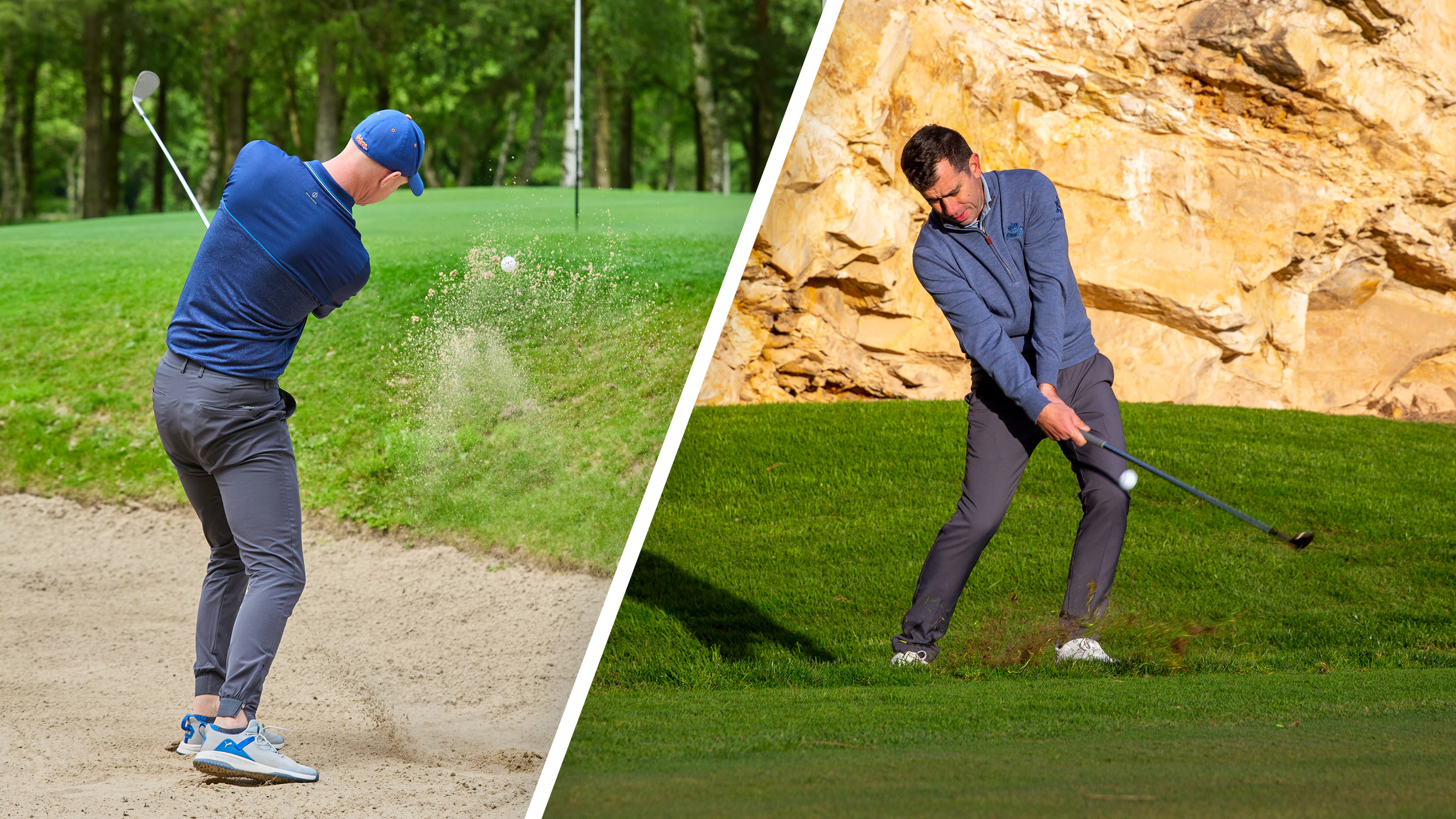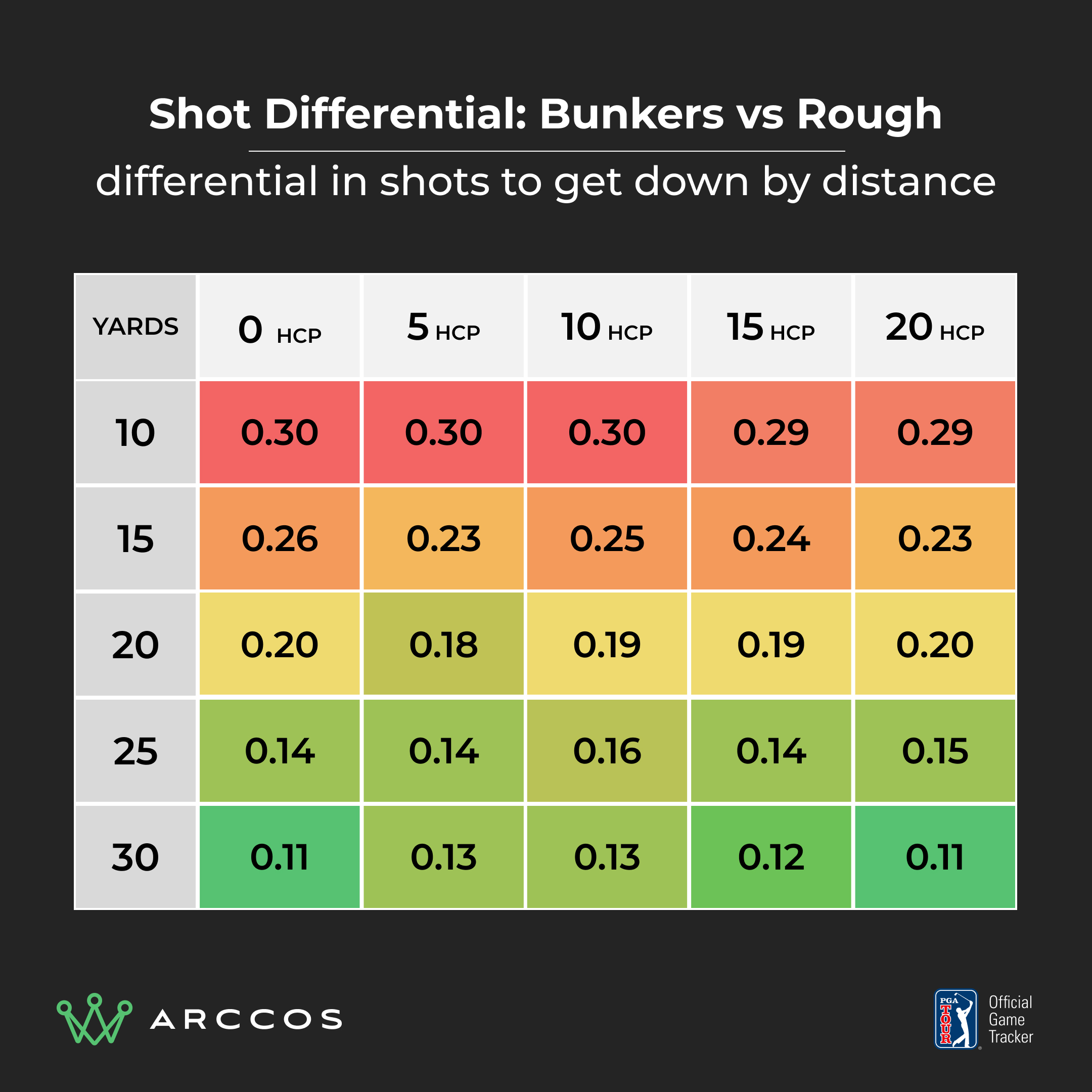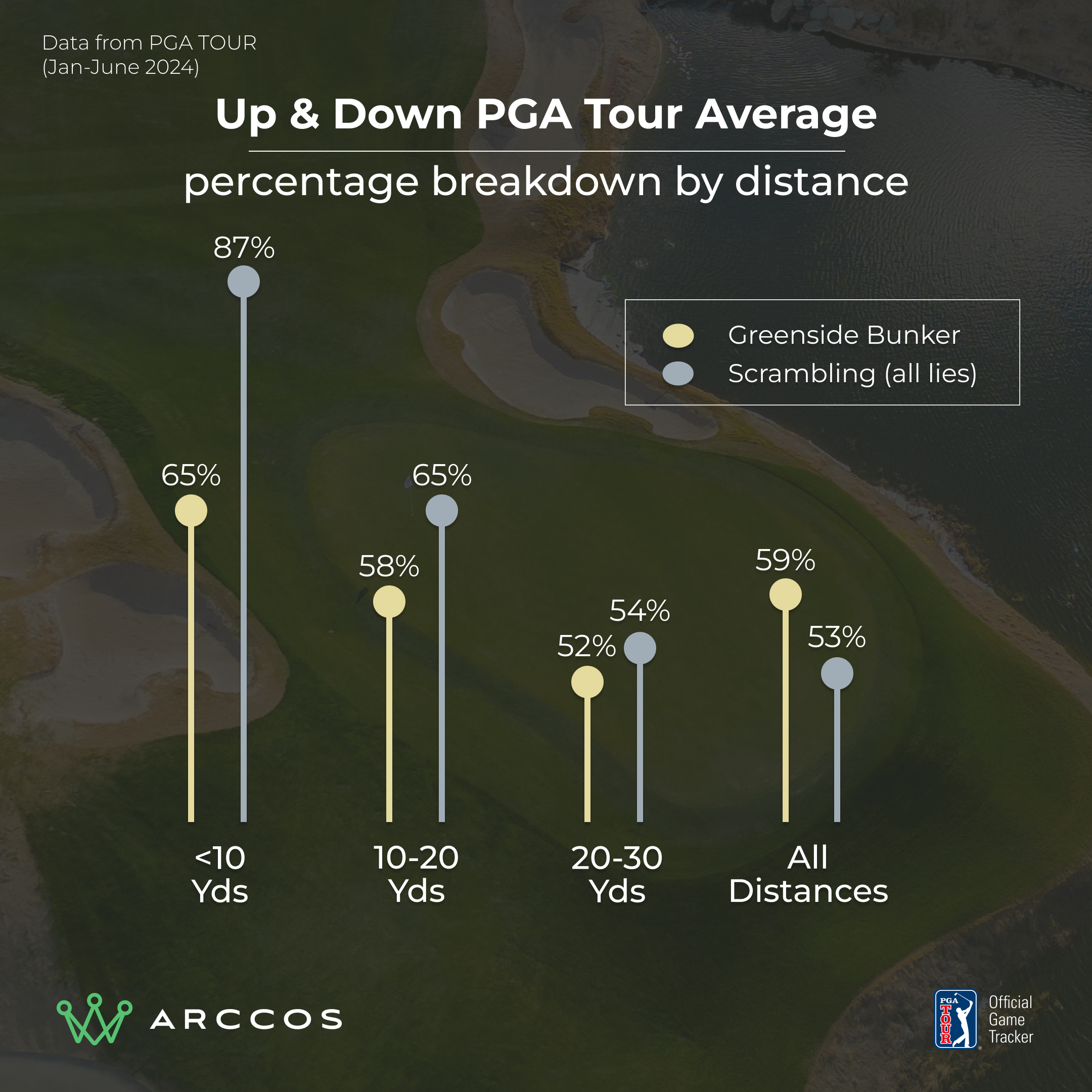
Even for the most talented and consistent amateur golfers, finding the green in regulation on every hole is not a realistic ambition. The PGA Tour average is just 64 percent, so taking time to assess the danger and find the 'good' miss is crucial.
Rough and bunkers are common foes for golfers around the world, but which is the lesser of two evils? Thanks to the latest Arccos data, we can now answer this important question and help you avoid needless bogeys on the golf course...
Rough Or Bunker... Which Is The Better Miss?
Often the answer to questions like this depend on a number of factors, like distance to the hole and handicap index of the player, and while the former is true in this case, I was surprised to find the data was pretty consistent irrespective of ability level.
Ultimately, whether you are a scratch player or a 20-handicapper, playing from the bunker as opposed to the rough from anywhere inside 20 yards will cost you at least 0.2 shots on average. So, if you are a player that consistently finds the sand traps, those small margins can quickly add up and lead to a bigger score than you had hoped for.
The graph below shows the data in more detail, specifically the amount of shots gained by playing from the rough as opposed to the bunker at varying distances. Interestingly, the correlation suggests the further away from the hole you get, the less significant the impact on your scoring becomes.

What Are The Chances Of Getting Up-And-Down?
When missing the sand, and facing a shot of up to 25 yards to the green, a scratch player (59%) is more than twice as likely to get the ball up-and-down in comparison to a 20-handicapper (23%).
This upward trend, while slightly slower, continues with a 15-handicapper (29%), 10-handicapper (37%) and 5-handicapper (46%).
When you introduce sand to the equation, the numbers decrease slightly. A scratch player is now only expected to get up-and-down 39 percent of the time, and the gap to a 20-handicapper (13%) increases further as they are three times less likely to achieve this.
The gap between a 15-handicapper (17%), 10-handicapper (21%) and 5-handicapper (28%) also closes, evidencing further the difficulty increase when playing from the bunkers for amateur golfers.
How Does That Compare To The PGA Tour?
While we are regularly treated to the totally unrelatable sand save sorcery from PGA Tour golfers, it appears they really aren't so different from us – at least not in this case.
From inside 10 yards, PGA Tour players get up and down from the bunker 65 percent of the time, but that number shoots right up to 87 percent when playing from other lies (including rough).

The discrepancy reduces drastically for any distance between 10 and 30 yards from the green, as demonstrated in the graph below, but the data exemplifies the benefits of avoiding the greenside bunkers where possible.







